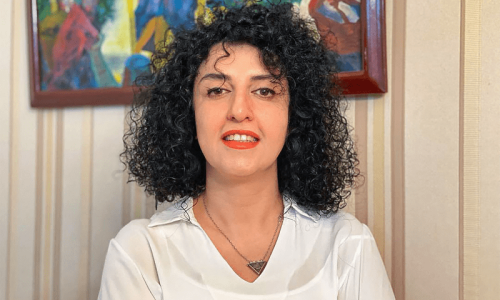ISLAMABAD: All over the world, legislation especially on the death penalty is done after a long discussion. But in Pakistan, laws are made without considering their positive and negative aspects.
This was stated by Human Rights Commission of Pakistan (HRCP) Secretary General I.A. Rehman here on Saturday.
He was speaking at a seminar, “The death penalty regime in Pakistan” held in connection with the International Day against the Death Penalty at a local hotel.
Mr Rehman said once execution was handed down on only two crimes but with the passage of time it was imposed on 27 crimes without thoroughly considering them.
Speakers at seminar say number of crimes carrying death penalty should also be reduced
“In the United Kingdom, the number of crimes carrying the death penalty was initially decreased and then the death penalty was abolished. We demand a moratorium on executions and the reduction of the number of crimes on which death sentences are given,” he said.
It may be noted that from January 15 to September 15, as many as 236 convicts were executed in Pakistan.
Senator Farhatullah Babar of the PPP said in the past there was an unannounced moratorium on the death penalty.
“However, after the massacre at the Army Public School (APS) Peshawar on December 16, 2014, the moratorium was lifted. This is a serious issue but abolishing the death penalty at once is not possible.”
He said the death penalty can gradually be abolished, so efforts should be made to reduce the number of crimes carrying the death penalty.
Senator Afrasiab Khattak of the ANP said Ijtihad, independent reasoning and reinterpreting issues had ceased to exist.
“For example, slavery has been phased out. Even Jihad needs to be revisited.”
Mr Khattak said the military was not supposed to choose cases for hearing in the military courts and only the government should send the cases to the courts.
Human rights Activist Marvi Sirmed said the National Action Plan (NAP) was announced just after the terror attack on the APS. Though there was a difference of opinion, a majority of citizens wanted the execution of terror convicts.
She said though the civil society was in favour of the moratorium, there were also concerns which needed to be addressed. She said reforms were required in the criminal justice system.
The head of the Centre for Civic Education, Zafarullah Khan, said the death penalty should be abolished but only gradually.
“Unfortunately, we have different judicial systems such as special courts and anti-terrorism courts and sometimes suspects spend the duration of lifetime imprisonments in jail before the death sentence is announced. Ideally, one person cannot get double punishment for the same crime,” he said.
The participants of the seminar later held a protest outside the National Press Club against the death penalty. They demanded the government impose a moratorium on executions.
Published in Dawn, October 11th, 2015
On a mobile phone? Get the Dawn Mobile App: Apple Store | Google Play













































